One of the first questions our customers ask when considering whether to add storage to their solar system is how long their batteries will last. It’s an important question because a long-lasting battery not only increases savings but also empowers you to take control of your energy dependence, leading to a more sustainable and cost-effective lifestyle.
In this blog, we’ll discuss the key factors that contribute to the lifespan of batteries and how you can maximize their operational life. We’ll also look at some of the innovative solutions that leading storage brands like Tesla, Enphase, and LG provide to extend the efficiency and lifespan of these batteries. We’ll discuss alternative storage technology for home solar systems and determine which type of battery technology makes the most sense for you.
After reading this guide, you can make informed purchasing decisions and learn how to extend the useful life of your existing storage system.
Why Lithium-Ion batteries are the preferred option for home solar systems
Lithium-ion batteries are the solar battery of choice in residential applications and the one we recommend to our customers.
Here’s why:
High Energy Density: Energy density means how much energy a battery stores compared to its weight. Lithium-ion batteries store more energy per unit of weight than other types, making them ideal for limited space, like garages, basements, or outbuildings.
Long Cycle Life: They can handle many charge and discharge cycles with minimal degradation. Chemicals in batteries naturally break down over time, leading to a decreased ability to hold charge. Lithium-ion batteries hold up better than other types of batteries, providing a predictable lifespan of 10 to 15 years. You can expect to purchase two batteries for the extent of your solar system. A backup battery is also an option if you decide to scale up.
Low maintenance requirement: One of The unique features of lithium-ion batteries is their low maintenance requirement. This user-friendly aspect not only saves you time and effort but also ensures a cost-effective solution over time, giving you the confidence that you've made the right choice for your home solar system.
Efficient Charging: Lithium-ion technology supports fast and efficient charging, which is crucial for maximizing the use of solar energy during variable sunlight conditions.
Improved Safety Features: Modern lithium-ion batteries have advanced management systems that ensure safe operation through temperature control and voltage regulation.
These features make lithium-ion batteries the optimal choice for customers looking for reliable, long-term energy solutions to go along with their solar systems.
How to lengthen the lifespan of Lithium-ion batteries
While lithium-ion batteries take minimal maintenance, you can still take steps to get the most out of them.
Keep Depth of Discharge (DoD) within the recommended range
Depth of Discharge (DoD) is a term used to describe the percentage of the battery's total capacity that has been used. In simpler terms, it's like the fuel gauge in your car. When it's full, the battery is at 100% DoD. When it's empty, the battery is at 0% DoD.
Lithium-ion batteries have a recommended range of 50% to 80%, which means they should only be discharged to about 20-50% of their total capacity before recharging. By maintaining this practice, you can maximize your battery's useful life.
You don’t have to keep track of this yourself. Energy management systems, such as smart inverters or battery management systems, are available that automatically regulate the discharge levels, ensuring the battery does not drain too deeply. These systems monitor the battery's state of charge and adjust the charging and discharging rates accordingly, maximizing the battery's lifespan.
Manage temperature
High temperatures can accelerate the chemical reactions that degrade the battery, while cold conditions can reduce its capacity to hold a charge.
Say you live in Florida, where temperatures climb into the 100s consistently during the summer months. Installing the battery system in a temperature-controlled part of your home can mitigate heat-related degradation.
Colder temperatures can also affect batteries. If you live in a colder climate (like Ohio, where we call home!), keeping batteries in insulated enclosures can help maintain a stable, effective operating temperature.
Don’t overcharge
Overcharging, known as voltage stress, can reduce battery life due to excessive heat and stress on the battery's materials. Many lithium-ion batteries come with smart solar charge controllers, like those provided with Tesla Powerwalls or LG Chem systems. These prevent overcharging by controlling the charge state based on the battery's capacity and health. In rare but extreme cases, overcharged batteries can suffer from reduced capacity, shortened lifespan, and safety risks like thermal runaway.
Manage energy load
To manage energy load effectively, homeowners can utilize smart home energy systems that automatically adjust power consumption and storage based on real-time energy production and usage patterns. These systems, often integrated with solar inverters or battery management systems, can help balance the energy drawn from the battery during peak and off-peak hours, optimizing its operational cycle and extending its life. Tesla Powerwalls, for example, come with programmable features that allow you to set your energy usage preferences and maximize the efficiency of your battery.
Alternatives to Lithium-Ion for Residential Use
While lithium-ion is recommended for nearly all residential applications today, there are some options where alternative solutions can make sense.
Lead-Acid Batteries:
Lead-acid batteries are used in smaller or off-grid systems where the lower initial cost is a significant factor. However, they require frequent maintenance and careful charging to extend their lifespan, typically about 5 to 7 years.
Although they have lower energy density and efficiency, their cost-effectiveness makes them suitable for these less demanding applications.
Nickel-Based Batteries:
Nickel-cadmium (NiCd) and nickel-metal hydride (NiMH) batteries can be a good choice for environments where higher temperature operation is needed. They are more robust at high temperatures and offer good cycle life, though they are less energy-efficient and more costly than lithium-ion. These attributes make them less common in residential settings but potentially valuable in specific, niche applications.
Flow Batteries:
We’ve been following this fascinating technology closely.
These batteries operate by pumping electrolyte solutions across a membrane, where ions are exchanged to store or release energy. They offer quick response times and minimal cycle degradation.
For now, they’re used for grid-scale storage because they can handle large capacities and long discharge cycles. They’re not yet cost-effective compared to their lithium-ion alternatives, but they may eventually be scaled down for residential use. We are aware of some options that exist today.
Get it Right with Yellowlite
Choosing the right battery for your residential solar system maximizes efficiency and lifespan. You can’t beat lithium-ion batteries for their longevity, performance, and ease of use for most residential applications. If you decide to purchase a battery, implementing proper care, regular maintenance, and smart energy management practices can help you maximize the effectiveness and durability of your solar energy system.
Additional questions about battery storage? Contact one of our pro-solar experts at Yellowlite today.



